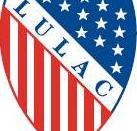Today schools throughout the United States have to deal with a growing number of students speaking different languages. The need of educational reform has prompted a great deal of debate among educators and policymakers. Bilingual education system was first introduced in the 60-th as an alternative way to solve social problems at the time when ethnic pride movement supporters insisted all ethnic subcultures should be treated equally. The program's original goal was to offer minority language students the way to improve communicational and written skills in English while learning the new material in their first language, and to prepare them for an effective integration into American society through gradually introducing to a new culture.
Historically, Americans have not showed great tolerance to linguistic diversity. There have been repeated efforts to make English an official language in the country by restricting bilingualism, as well as attempts to enhance more ESL programs on the other side.
There is an ongoing disagreement regarding whether or not ESL program meets its initial objective, the ways it affects American society, and its necessity. The opponents of bilingual teaching argue it is expensive for the country, keeps immigrants socially isolated, slows down the assimilation process, creates a retreat of an official language and dissolves the unity of America. Generally, a lot of people form negative assumptions about bilingual programs based on their ideological beliefs, political views, personal observations, negative experience or simply generalizations and stereotyping based on limited knowledge about ESL classes (Rojas 1). These judgments usually lack evidence and logical reasoning, and thus cannot objectively analyze the program's weaknesses or disadvantages. As Maria Brisk observes, "Much of the debate on bilingual education is politically motivated, more suitable for talk shows than for improving schools" (Rojas 1). And indeed, ESL programs are viewed more as a...


